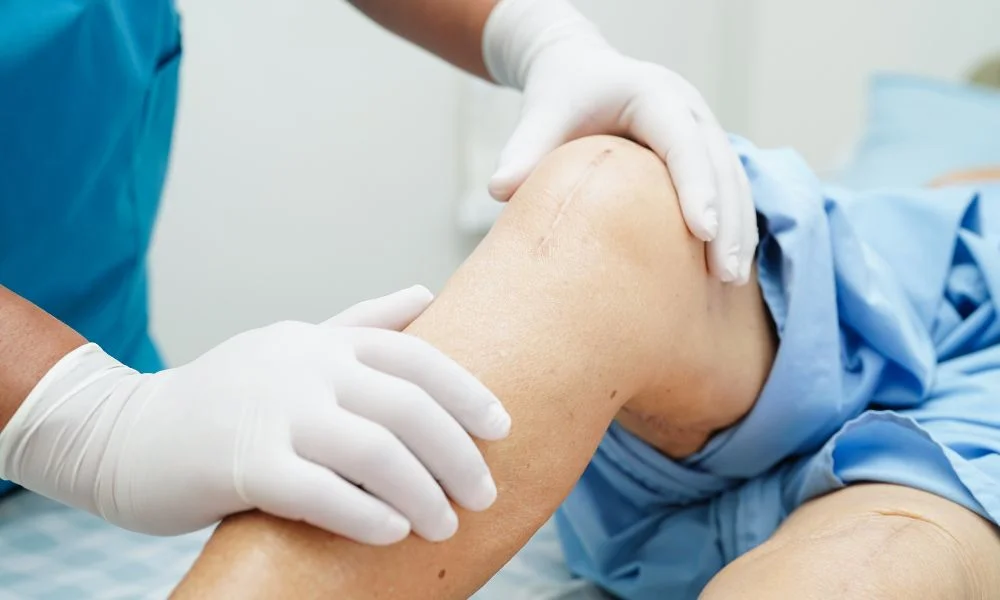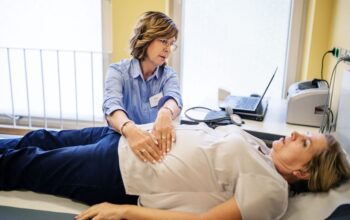Knee replacement surgery can change the rest of a person’s life if they have chronic knee pain, arthritis, or an accident. Even though the surgery might only take a few hours, the healing process can last for weeks or even months and needs dedication, patience, and the right kind of therapy. Patients can set realistic goals and get ready mentally and physically for the road ahead by learning about the stages of healing.
Immediate Post-Surgery Recovery (Days 1–7)
Most people stay in the hospital for one to three days after surgery. At this point, doctors and nurses closely watch the patient’s vital signs, treat pain, and start light physical exercise. Within 24 hours, you should be able to stand and walk short distances, most likely with the help of a walker. Getting moving early helps keep blood flowing and stops blood clots from forming.
Pain is usually controlled with medicine, but swelling, bruising, and discomfort are typical. Your surgical team will tell you how to take care of your wounds and help you move to home or rehab so you can continue to heal.
The First Few Weeks (Weeks 1–6)
This phase focuses heavily on physical therapy. Whether you’re recovering at home or in an outpatient setting, therapists will guide you through exercises that restore strength and flexibility. By the end of the first month, many patients can walk with a cane or unassisted.
Patients may feel frustrated by the slow pace of progress, but it’s important not to rush. Overexerting the joint too early can cause setbacks or complications. Rest, ice treatment, and elevating the area also help a lot with reducing pain and inflammation.
Interestingly, some patients wonder how this recovery compares to less invasive procedures, such as arthroscopic knee surgery. While arthroscopy typically has a much shorter recovery timeline—often just a few weeks—the procedures are vastly different. Arthroscopic surgery is minimally invasive and is usually used for diagnostic or minor repairs. In contrast, a total knee replacement involves replacing the joint entirely, requiring more intensive healing and rehabilitation.
Mid-Term Recovery (Weeks 6–12)
By the two-month mark, most patients notice significant improvement in pain levels and mobility. Daily tasks like climbing stairs, walking longer distances, and getting in and out of a car become easier. You’ll likely continue physical therapy two to three times a week, building strength in the surrounding muscles and improving joint stability.
During this phase, some patients return to low-impact activities like swimming or cycling. However, high-impact sports and heavy lifting should still be avoided. It is very important to keep your therapy and follow-up visits so that you can heal properly and catch any problems early.
Long-Term Recovery (3–12 Months)
Full recovery from knee replacement surgery often takes six months to one year, depending on individual factors such as age, overall health, and pre-surgery fitness levels. By this stage, you can expect to return to most daily activities without pain, although minor stiffness or swelling may still occur occasionally.
Patients are encouraged to stay active through low-impact exercises and maintain a healthy weight to preserve joint function. For some, this period marks the beginning of a more mobile, pain-free life that had once seemed out of reach.
Final Thoughts
While the average recovery timeline for knee replacement surgery spans six to twelve months, the journey is highly individualized. Not only does the surgery matter, but so does the patient’s willingness to heal and make changes to their lifestyle. Comparing recovery timelines to those of arthroscopic knee surgery may help highlight the importance of patience and perseverance in the healing process.
With proper care, knee replacement can dramatically improve quality of life and restore mobility. Understanding what to expect at each stage allows patients to navigate recovery with greater confidence and clarity.




